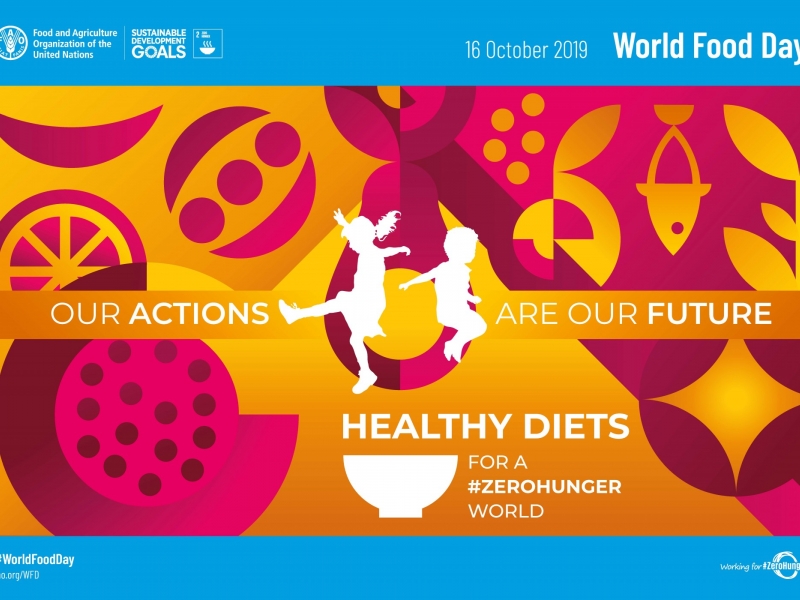World Food Day – Healthy Diets for a #ZeroHunger World
Every year, on the 16th of October, organisations and individuals around the world come together to reaffirm their commitment to tackling global hunger.
This year, World Food Day calls for action across sectors to make “healthy and sustainable diets affordable and accessible to everyone.” As highlighted in the new UNICEF State of the World’s Children 2019 report, we witness today a changing burden of malnutrition with the combination of underweight, overweight and hunger co-existing not only in one country but even within the same families. This shift in the picture of children’s malnutrition can be summarised simply: “more children and young people are surviving, but far too few are thriving.”
Today, three forms of malnutrition are simultaneously emerging – undernutrition, hidden hunger and overweight. As highlighted in the new UNICEF report, at least one in three children around the world suffers from one of these forms of malnutrition, and even sometimes a combination of both. And, as World Obesity’s Childhood Obesity Atlas shows that no country has a better than 50% chance of meeting their target of tackling childhood obesity.
In January 2019 The Lancet Commission on Obesity published its first report which explored the challenges we face in relation to Obesity, Undernutrition and Climate Change. The complex faces of malnutrition highlight the extent to which food systems around the world are failing to provide healthy, safe and sustainable diets for children around the world. Food systems include all activities linked to the “production, processing, distribution, preparation and consumption of food.” Improving food systems therefore require the collaboration of farmers, producers, the industry, governments and civil society organisations. But we also need to ensure that the most vulnerable segments of the population are placed at the centre. Unfortunately, a key group is often left out. Given their unique nutritious needs, children should be the focal point of any restructuration initiatives taken to improve food systems. This means not only developing our actions focused on their needs, but also ensure that their voice is heard and their opinion taken into account.
What can children do? Click here to find out about opportunities for young people to get involved and play their part to achieve a #ZeroHunger World!
